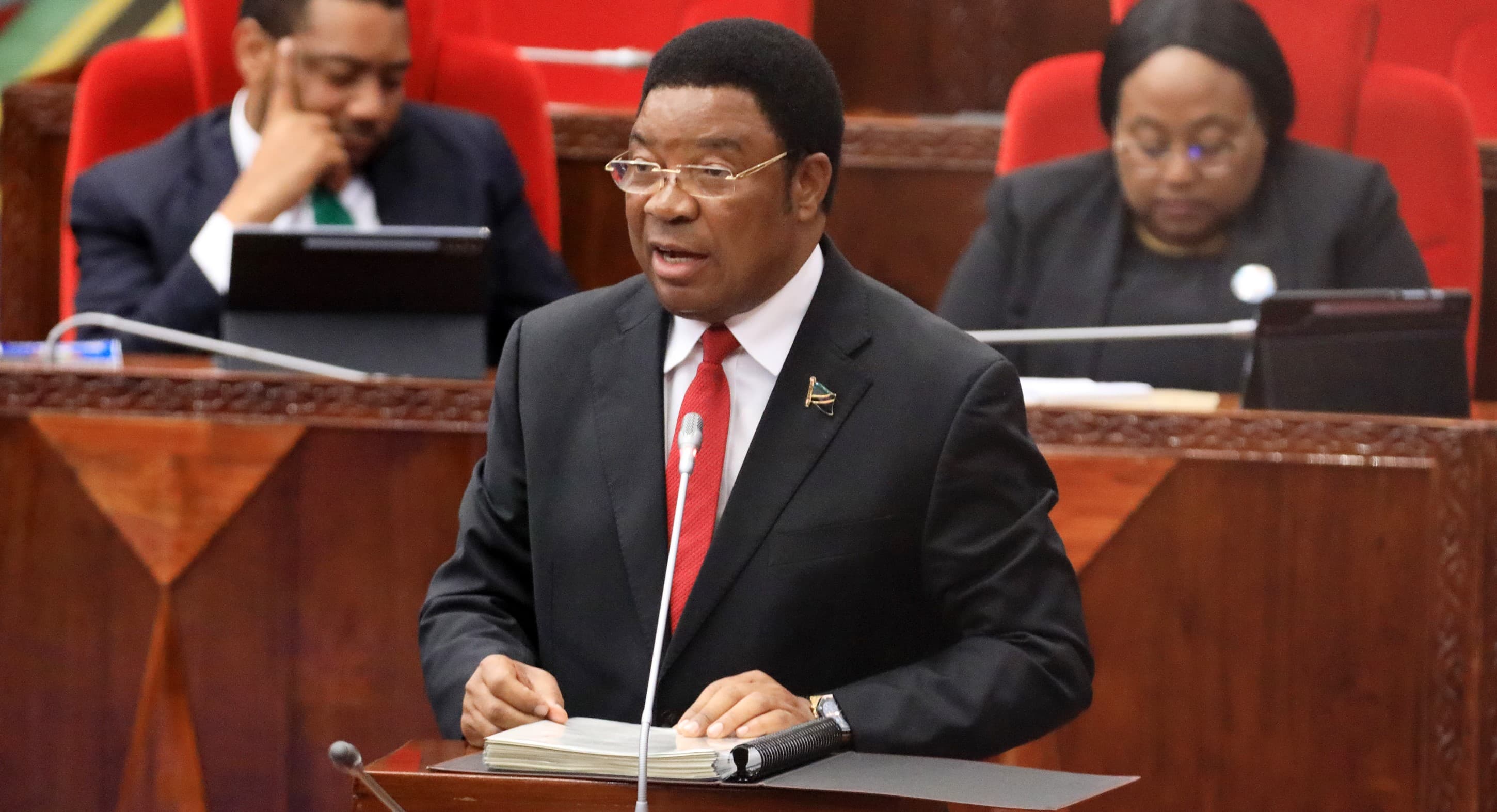We're loading the full news article for you. This includes the article content, images, author information, and related articles.
President Samia Suluhu Hassan’s appointment of former Finance Minister Dr. Mwigulu Nchemba as Prime Minister signals a renewed focus on economic sovereignty that may reshape trade dynamics with Kenya and the East African Community.

DODOMA, TANZANIA – In a significant political realignment, Tanzanian President Samia Suluhu Hassan on Thursday, November 13, 2025, nominated Dr. Mwigulu Lameck Nchemba, the country's former Finance Minister, as the new Prime Minister. The nomination, delivered to Parliament Speaker Mussa Azzan Zungu and expected to be swiftly approved, concludes a decade-long tenure for his predecessor, Kassim Majaliwa, and places a seasoned economist at the helm of government administration. The move is widely interpreted as a strategic pivot by President Hassan to consolidate her authority and steer Tanzania towards a more assertive economic path, a development with significant implications for Kenya and the broader East African region.
Dr. Nchemba, 50, a long-serving Member of Parliament for the Iramba West Constituency from the ruling Chama Cha Mapinduzi (CCM) party, is a career economist with a PhD in the field from the University of Dar es Salaam. His extensive cabinet experience includes stints as Minister for Home Affairs, Agriculture, and Justice and Constitutional Affairs under two previous administrations. His most recent and impactful role was as the Minister for Finance, a position he held since March 2021, where he was the chief architect of President Hassan’s economic policies.
His appointment follows a contentious general election on October 29, 2025, which saw President Hassan secure a decisive victory amidst opposition claims of irregularities. The subsequent political tension has been a point of concern for regional business leaders. In a statement on November 4, 2025, the Kenya Association of Manufacturers (KAM) warned that any prolonged instability could disrupt the vital cross-border trade that saw Kenyan exports to Tanzania reach KSh 67.2 billion in 2024.
Dr. Nchemba’s tenure at the finance ministry was marked by a distinct policy direction focused on bolstering domestic revenue collection, reforming the tax regime, and promoting local industry—an agenda that directly impacts regional trade dynamics. His final budget speech in June 2025 outlined measures to discourage imports and enhance local value addition, including a new directive requiring large-scale miners to refine and sell at least 20% of their gold production within Tanzania. This policy is part of a broader strategy to increase the mining sector's contribution to the national GDP.
For Kenyan businesses, which primarily export manufactured goods to Tanzania, this inward-looking industrial policy presents both challenges and opportunities. While it could intensify competition, it also signals a stable policy environment geared towards sustainable economic growth. Dr. Nchemba has also been a key figure in East African Community (EAC) ministerial councils, where he has participated in negotiations to dismantle non-tariff barriers (NTBs). In a June 2023 meeting, EAC ministers, including Dr. Nchemba, agreed to resolve ten outstanding NTBs, a move aimed at easing trade flows that have often been a source of friction between Nairobi and Dodoma.
The relationship between East Africa's two largest economies has been historically complex, characterized by periods of close cooperation and intense rivalry. Under President Hassan, diplomatic and trade ties have improved, with leaders from both nations working to resolve persistent issues. Official data shows that 50 trade barriers between the two countries have been eliminated in the past four years. However, tensions periodically flare up, most recently in mid-2025 when Tanzania imposed stringent restrictions on Kenyan traders in border towns, citing regulatory enforcement.
Dr. Nchemba’s premiership is expected to bring a data-driven, economic focus to the forefront of bilateral relations. His past statements emphasize a desire for patriotism in economic matters, urging African nations to prioritize locally produced goods in public procurement. This stance could see Tanzania adopt a harder negotiating position on trade terms to protect its nascent industries. On November 7, 2025, just days before Nchemba's nomination, Kenya's Prime Cabinet Secretary for Foreign Affairs, Musalia Mudavadi, held talks with his Tanzanian counterpart to address the welfare of Kenyans working in the country, underscoring the deep and ongoing engagement required to manage the relationship.
The transition marks the end of Kassim Majaliwa's premiership, which began in 2015 under the late President John Magufuli. Mr. Majaliwa’s exit was anticipated after he announced in July 2025 that he would not seek re-election for his parliamentary seat, a constitutional requirement for the premiership. Political analysts suggest his departure, along with that of other senior officials, is part of President Hassan's strategy to build her own leadership team and consolidate control over the CCM party ahead of her next term.
As Prime Minister, Dr. Nchemba will be responsible for coordinating the day-to-day functions of the government and overseeing the implementation of President Hassan’s development agenda. His deep understanding of economic policy and his experience navigating the intricate politics of the EAC will be critical. For Kenya and the rest of the region, his leadership will be closely watched as a key indicator of Tanzania's future direction on regional integration, trade, and economic cooperation.
Keep the conversation in one place—threads here stay linked to the story and in the forums.
Sign in to start a discussion
Start a conversation about this story and keep it linked here.
Other hot threads
E-sports and Gaming Community in Kenya
Active 9 months ago
The Role of Technology in Modern Agriculture (AgriTech)
Active 9 months ago
Popular Recreational Activities Across Counties
Active 9 months ago
Investing in Youth Sports Development Programs
Active 9 months ago
Key figures and persons of interest featured in this article